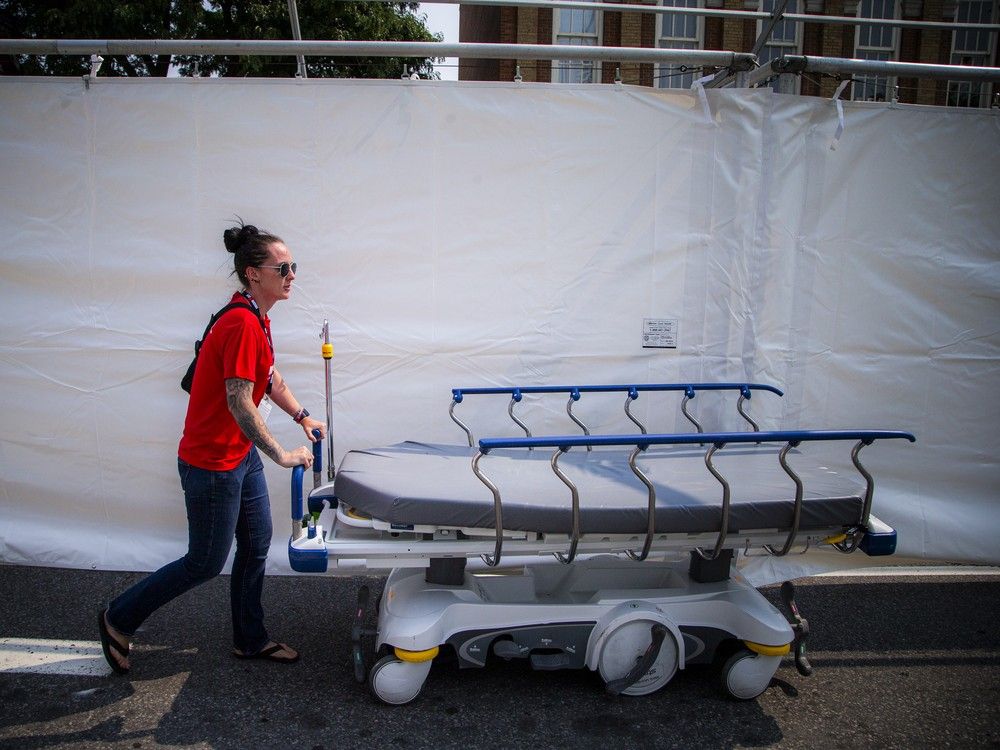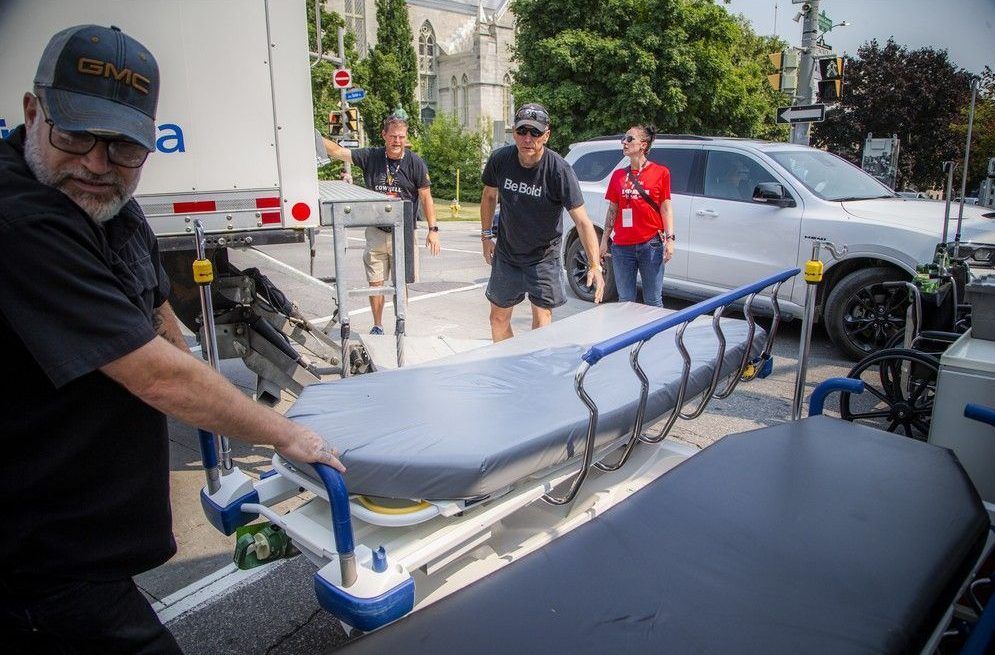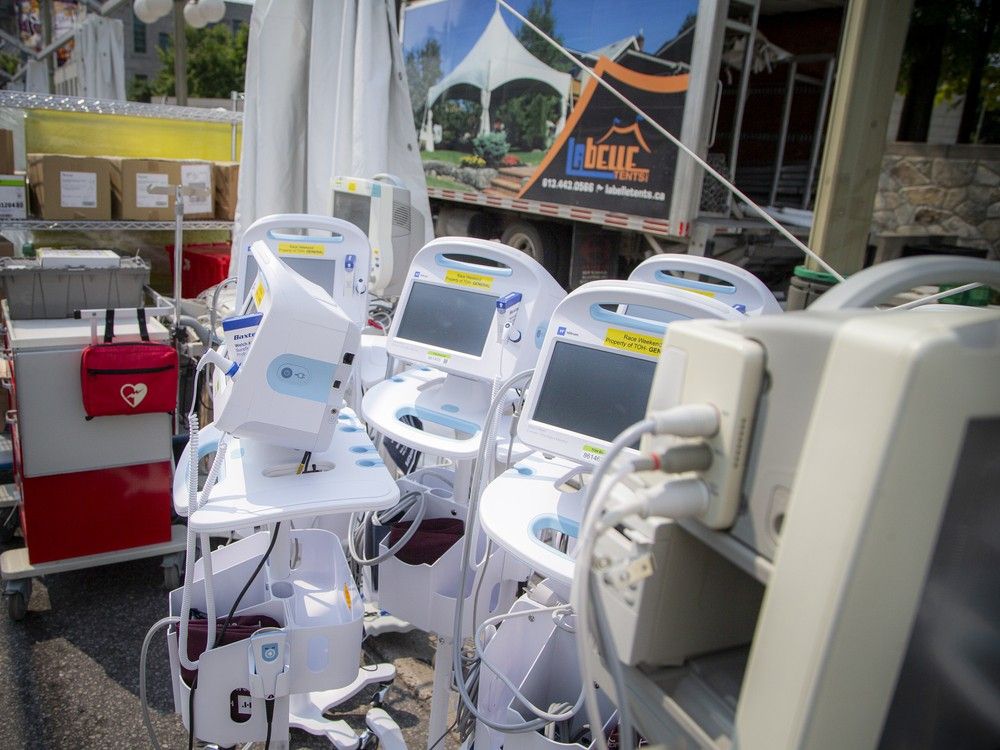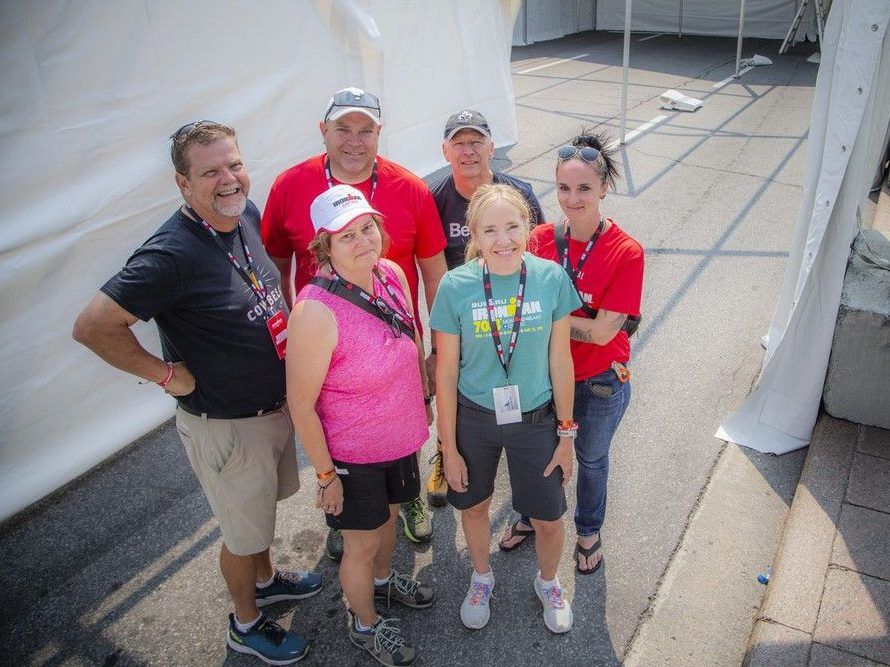Those at an Ottawa Hospital satellite clinic worked hard Sunday to take pressure off hospital emergency rooms across the city as
thousands of Ironman athletes pushed themselves
to the limit.
Approximately 3,000 registered athletes swam, biked and ran across Ottawa and Gatineau at the first-ever Ironman event in the National Capital Region.
The clinic, located near the finish line on Sussex Drive next to the National Art Gallery, was roughly 4,000 square feet, divided into wards, as well as areas for critical and monitored care.
Six medical teams and 300 volunteers staffed the facility through the day, providing treatment for dehydration, injuries and heat-related issues. There were also teams scattered across
the Ironman course
to provide on-site medical services.
First responders were stationed at the main medical tent and along the course to transfer patients.
Jackie Mace, captain of the main medical tent, said the clinic was a fully-equipped intensive care unit with cardiac monitors, AEDs, cardiac medication and equipment to intubate patients.
There were also oxygen tanks and air conditioning
to cool athletes down
after a heat-related injury, such as heat stroke and heat exhaustion.
The goal was to divert patients from going to the hospital, she said. Usually, around 10 per cent of race participants will come into the tent for medical attention.
“What we do is we try to divert the patients from going to the hospital, because race medicine is a bit different than regular medicine …
“The patient will come in really, really sick, but the minute that you get their core temperatures down to a much more normal level, they rebound really quickly.
“They can come in looking like terrible near death, and an hour or two later, they’re having conversation with you and are ready to go home. So that’s why, this way, we avoid having all these patients from going to the hospital.”

This isn’t the hospital’s first satellite clinic operation.
For the past decade, The Ottawa Hospital has led medical tent and on-course medical services for Ottawa Race Weekend.
Mace said the hospital has been streamlining satellite clinic operations for the past 15 years.
“When we started 15 years ago, it was not this streamlined. We were kind of running by the seat of our pants. Now we really know what we’re doing, and we know what we need, and so basically, we recruit volunteers for what we need.
“So it works out quite well,” she said.
Karen Lawrence, a fundraiser and registered nurse at The Ottawa Hospital Foundation, has been leading medical teams at the satellite clinic for Ottawa Race Weekend since 2001.
She said The Ottawa Hospital has been working with paramedics, the Ottawa Police Service and Ottawa Fire Services to come up with a medical plan since September 2024.
They also worked with Ironman to plan heat mitigation strategies. The strategies were valuable when temperatures peaked at 28 C with smoky skies on Sunday.
“There’s a lot of stakeholders working together on this. It’s a big undertaking,” Lawrence said.
At the end of the day, Lawrence was confident patients were able to receive the same care they would have received at the hospital itself.
“Obviously, (first responders) could handle it without the hospital being involved, but we want to limit the burden on their resources,” she said.


Our website is your destination for up-to-the-minute news, so make sure to bookmark our homepage and sign up for our newsletters so we can keep you informed.
Related
- Deachman: If we’re serious about EVs, we need to build new charging stations
- Statistics Canada to end more than 140 workers’ contracts this fall



